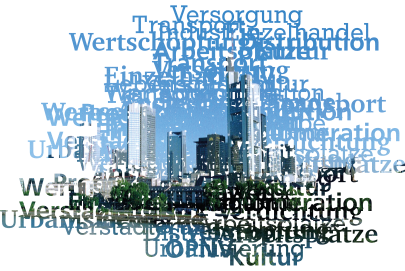Urbanization describes the steady urban growth of living and economic environments. Whereas, today, half of the world's population is already living in cities, forecasts predict that, in 2030, it will be two thirds. The demographic change towards an aging population will also have obvious impacts. In Europe, it is expected that, by 2050, one third of the population will be over 60 years of age. A further megatrend is the clearly measurable climate change, which influences the environmental awareness of consumers. A challenge also arises from the globalization of the production and consumption of commodities. The global production of goods has increased nine-fold in the last 50 years. In view of these mega-trends, companies are faced with the challenge of developing economically and ecologically viable and socially acceptable solutions for “urban added value”. There is a need for action, in order to successfully adapt value chains and business processes to changing environments, so that locations and companies remain competitive.
The project aims at describing areas of action for future developments in the fields of production, transport, and logistics. The factors that will influence tomorrow’s logistics, in terms of added value for production, logistics, and transport will be determined by projecting scholarly research results and collecting practical expert knowledge, as they relate to the Frankfurt am Main region.
With this information, we can develop areas of action from which business challenges in terms of urban value can be derived. With the creation of this “future knowledge”, access to advances in knowledge can result in a competitive advantage.
Project leaders: Cora Bogusch and Jan Tränkner




